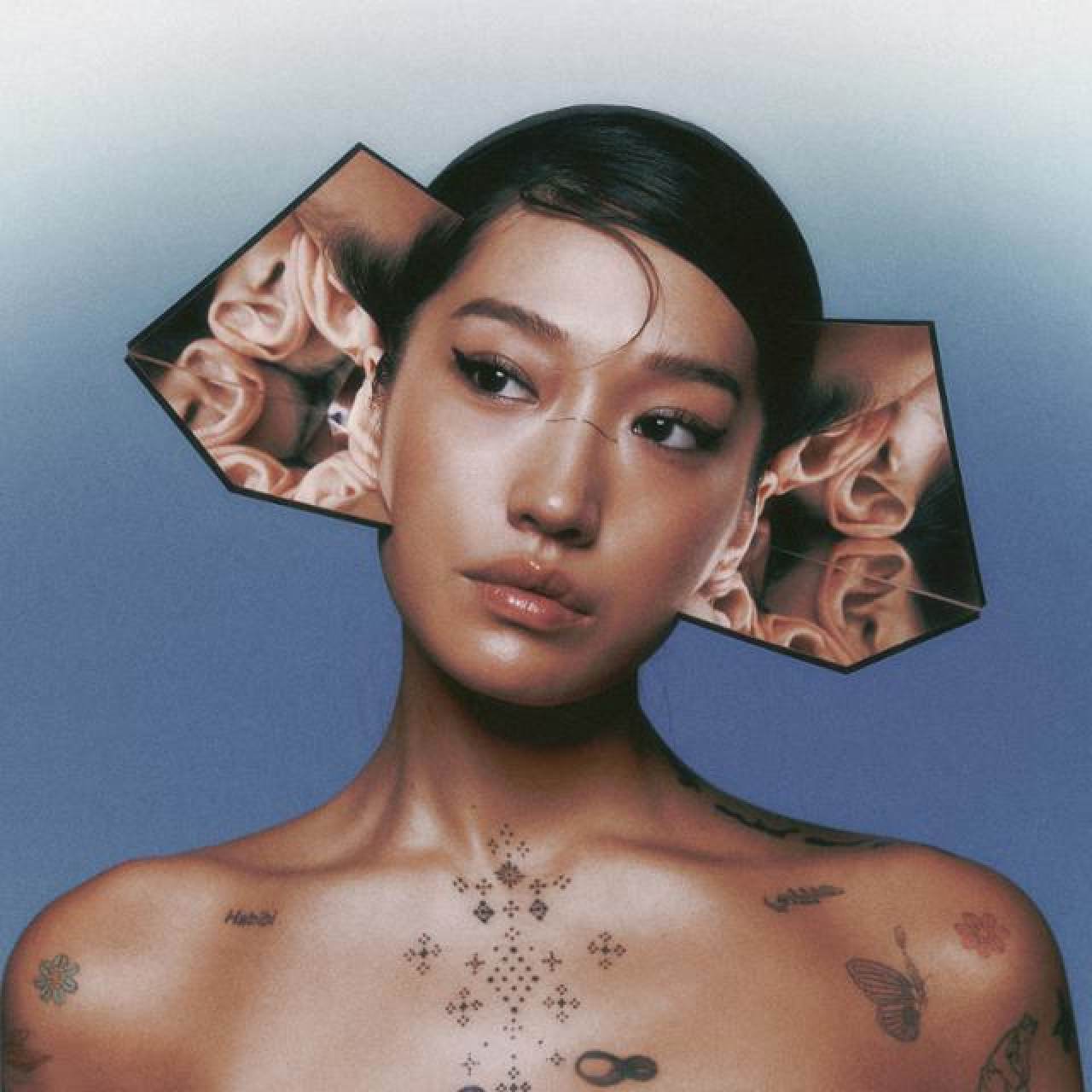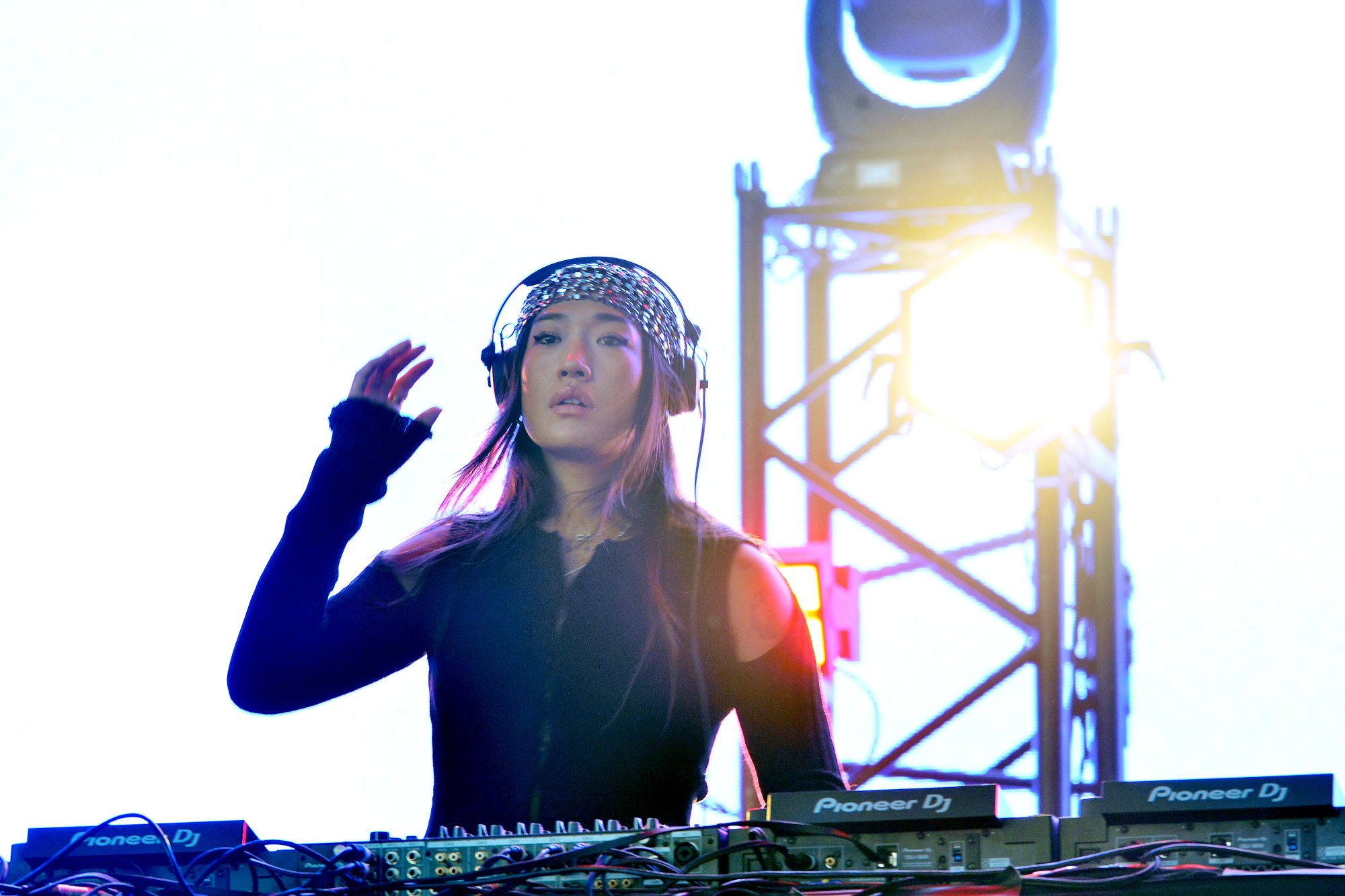Ahead of the album’s release, Gou – whose real name is Kim Min-ji – returned to her homeland for a brief visit.
“I love coming to Korea because I have people who are like tranquillisers to me, including my family and friends,” she said in a recent phone interview.
“When I’m in Korea, I receive skincare treatments and get introduced to new creators and brands in the music and fashion industries. I feel my brain can rest, and I always get inspired no matter who I meet or what I do.”
A debut album infused with Korean identity
Gou’s first full-length album arrives more than a decade after her debut as a DJ and eight years since the release of her original track, “Hungboo”.
“My perfectionist tendencies delayed the release by about two years. While I’m a musician, I started as a DJ, so I didn’t initially think an album was essential,” she said.
“At first, I thought having a few of my own tracks to play during DJ sets would be enough. But seeing people sing along to my songs made me realise I wanted to pursue a deeper path as a musician, which led me to start working on this album in 2018.”

Gou’s Korean identity features heavily in I Hear You. “I feel most like myself when singing in Korean,” she says.
The album reflects her unique blend of experiences and influences, anchored by her cultural roots.
Her debut single, “(It Goes Like) Nanana”, became a global hit after dropping last year and reached No 5 on the UK Official Singles Chart.
“Before, people would get to know me and then my music. After ‘Nanana’, many people discovered my music first and then got to know me,” she said, reflecting on the change in her popularity.
Following Gou’s performances at the Coachella music festival in the United States last month, she is set to appear at other major events such as the UK’s Glastonbury, Spain’s Primavera Sound and Japan’s Fuji Rock Festival.
She will also return to Seoul on July 27 for music broadcaster and club promoter Boiler Room’s Seoul 2024 event.
Finding solace in 90s music
Her new album, which reinterprets 1990s house music with a modern twist, features 10 tracks. It includes familiar songs like “Nanana”, which are easy to sing along to, as well as more pop-oriented tracks like “I Believe in Love Again”, featuring American pop star Lenny Kravitz.
The album also contains underground-leaning tracks, showcasing a diverse range of styles.
Gou often writes lyrics in Korean, and says: “I feel most like myself when singing in Korean because I am a proud Korean.”
This song – with a tempo of 150 beats per minute, it is the fastest on the album – was named after a playful nickname given by her fans, as she thought it suited the energy of Seoul.
Before Covid-19, Gou was more known as a DJ and producer – but the pandemic forced the cancellation of all her performances, from which she was close to suffering burnout. During that time, she found solace in 90s music, which inspired “Nanana” and the new album.
From rebellion to global DJ stardom
Behind Gou’s success story lies the unwavering support of her parents. They embraced their quirky daughter, who often did the opposite of what she was told – her mother once said, “She goes out and returns at dawn, and we have no idea what she’s up to”.
Her parents sent her to the UK hoping that she would at least learn English and become a teacher, but they did not stop her when she shifted her focus from fashion studies to music.
Her journey into music began with the influence of her first boyfriend, a DJ. Realising that “decorating oneself and decorating others are entirely different”, she abandoned her dream of becoming a stylist and picked up a daytime job at a record store and took DJ lessons in clubs at night.
Her efforts paid off and she became the first Korean DJ to perform at the renowned Berghain club in Berlin in Germany.

The male-dominated DJ world was a tough one for Gou to be accepted into – she often faced racism, sexism and jealousy, and heard remarks like, “Who will buy your records?” and “You’ll never succeed.”
Against all odds, Gou persevered and she rose to the top as a DJ and musician – and even briefly showcased her unique fashion sense through her streetwear label Kirin.
“There were times when I felt inferior and unqualified due to the discrimination and disdain I faced,” she recalled. “But that became my fuel. I thought, ‘You belittle me? I’ll prove you wrong.’
“The more successful I became, the more attacks and unfounded rumours I faced. But I saw that as a positive; getting hit makes you tougher. Now, I’ve reached a point where I can enjoy it. When someone criticises me, I think, ‘That means I’m doing well.’”
This article from the Hankook Ilbo, a sister publication of The Korea Times, was translated by a generative AI and edited by The Korea Times.

